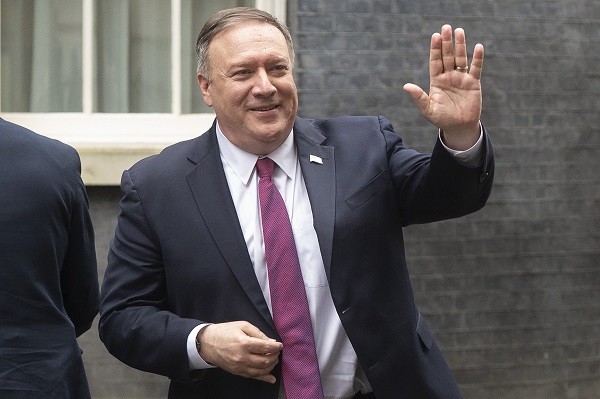New Delhi/Washington, Notwithstanding China’s ongoing medical emergency due to the Covid-19 epidemic, Washington remains wary of Beijing’s aggressive expansion of its regional influence.
While Secretary of State Mike Pompeo announced an additional $100 million of existing funds to support China in combating the coronavirus last week, a couple of days later, he warned that the US could not ignore Beijing’s actions. “Look at the nearly 18 tons of medical supplies that the US just flew to China this last week to fight Coronavirus. But while there are places we can cooperate, can’t ignore China’s actions and strategic intentions,” he said.
“If we do, we risk the important components of our relationship that benefit both countries. The Chinese Government has been methodical in the way it’s analysed our system, our very open system, one that we’re deeply proud of. It’s assessed our vulnerabilities, and it’s decided to exploit our freedoms to gain advantage over us at the federal level, the state level, and the local level,” Pompeo added.
Explaining the US position, he said: “At the end of the cold, American started to engage with China heavily. It made good sense. We thought the more we interact, the more it would become a liberal democracy, like us here in the United States. It didn’t happen. Indeed under Xi Jinping, the country is moving exactly in the opposite direction. More repression, more unfair competition, more predatory economic practices, indeed more aggressive military posture as well.”
Interestingly, in an attempt to counter Beijing’s growing footprint in the Indo-Pacific region, Washington sent its largest-ever delegation to the air show in Singapore. R. Clarke Cooper, Assistant Secretary of State for Political-Military Affairs, last week warned Beijing saying: “Even as China battles the coronavirus, it should not use this week’s Singapore air show as an opportunity to strong-arm US partners or steal intelligence or technological secrets.”
“We do not want to see them using the air show as a platform for exploitation and theft of not only our technologies but also others’ technologies,” he said.
Washington, Cooper said, was watching for any sign that Beijing was trying to expand its regional influence “aggressively”. “That includes efforts at the air show or more broadly to pile significant debt on customers purchasing particular weapon systems or otherwise jeopardise the sovereignty of US allies,” he said.
The warnings came just days after the US and China signed a trade agreement on new terms negotiated by the Trump administration. President Donald Trump called the deal “ground breaking new agreement” which will “defend American workers, protect US intellectual property, bring billions of dollars into our treasury, and open vast new markets for products made and grown in the US”.
In the first round of negotiations, China has agreed to import an additional $200 billion worth US goods and services by 2021 and also reduce some of the tariffs on US products. However, the major bones of contention over the bilateral trade are scheduled for the next round of negotiations, most likely after the US elections this year.
Incidentally, the US on Monday indicted four members of the Chinese military for allegedly breaking into the computer networks of Equifax credit reporting agency. Chinese Foreign Ministry spokesperson Geng Shuang on Tuesday, however, denied that the Chinese government and military and their relevant personnel had engaged in cyber theft of trade secrets.










